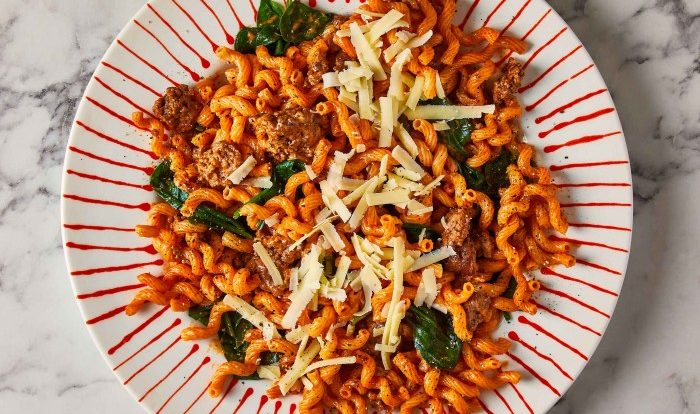When ketogenic diets blog because you’re addicted, the discussion revolves around the potential benefits of a ketogenic diet in reducing addictive behaviors. While addiction is a complex issue, the ketogenic diet has emerged as a promising approach, prompting researchers and individuals alike to explore its potential.
This blog delves into the science behind ketogenic diets, their impact on the brain, and their practical applications for addiction. We’ll examine case studies, success stories, and compare the ketogenic diet to other treatment options, providing a comprehensive overview of this intriguing topic.
Ketogenic Diet
The ketogenic diet is a high-fat, very low-carbohydrate diet that has been used for decades to treat epilepsy, and more recently, as a weight-loss strategy. The diet works by forcing the body to burn fat for fuel instead of carbohydrates.
When you eat a ketogenic diet, your body produces ketones, which are chemicals that can be used for energy. Ketones are produced when the liver breaks down fat. The brain and other organs can use ketones for energy, which can help to reduce seizures in people with epilepsy.
Benefits of a Ketogenic Diet
- May help to reduce seizures in people with epilepsy
- May help to promote weight loss
- May help to improve blood sugar control in people with type 2 diabetes
- May help to reduce inflammation
Drawbacks of a Ketogenic Diet
- Can be difficult to follow
- May cause side effects, such as nausea, vomiting, and diarrhea
- May not be suitable for everyone, especially people with certain medical conditions
Addiction and the Ketogenic Diet: When Ketogenic Diets Blog Because You’re Addicted
The ketogenic diet has gained attention as a potential treatment for various conditions, including addiction. Some proponents claim that the diet’s ability to reduce inflammation and stabilize blood sugar levels may help reduce cravings and addictive behaviors.
However, scientific evidence supporting this claim is limited. While some studies have shown promising results, others have found no significant effects on addiction.
Research Findings
- A study published in the journal Nutrientsfound that a ketogenic diet reduced alcohol consumption and withdrawal symptoms in mice.
- Another study, published in the journal Drug and Alcohol Dependence, found that a ketogenic diet did not significantly reduce cocaine use in humans.
The Science Behind Ketogenic Diets and Addiction

Ketogenic diets have gained attention for their potential role in treating addiction. These diets involve drastically reducing carbohydrate intake and increasing fat consumption, leading to a metabolic state known as ketosis. Understanding the metabolic changes and their effects on the brain is crucial in exploring the connection between ketogenic diets and addiction.
On a ketogenic diet, the body shifts its primary fuel source from glucose to ketones, produced by the liver from fat. This metabolic switch has several effects on the brain:
Ketones as an Alternative Fuel Source, When ketogenic diets blog because you’re addicted
Ketones can cross the blood-brain barrier and serve as an alternative energy source for the brain. This is significant because the brain typically relies heavily on glucose for energy. By providing an alternative fuel, ketones may reduce cravings and addictive behaviors associated with glucose dependency.
Neurotransmitter Regulation
Ketosis also affects the production and release of neurotransmitters, which are chemicals that facilitate communication between neurons. Some studies suggest that ketogenic diets may increase the levels of certain neurotransmitters, such as dopamine and serotonin, which are involved in reward and mood regulation.
When ketogenic diets blog because you’re addicted, there’s no better way to start your day than with a stack of fluffy protein pancakes . Not only are they packed with protein, but they’re also incredibly delicious. So if you’re looking for a way to satisfy your cravings without breaking your diet, give these pancakes a try.
You won’t be disappointed.
This may contribute to reduced cravings and improved mood, potentially benefiting individuals struggling with addiction.
Anti-inflammatory Effects
Additionally, ketogenic diets have anti-inflammatory properties. Chronic inflammation is linked to various health issues, including addiction. By reducing inflammation, ketogenic diets may improve overall brain health and function, potentially supporting recovery from addiction.
Practical Applications of Ketogenic Diets for Addiction
Implementing a ketogenic diet for individuals struggling with addiction requires careful planning and consideration. It involves adhering to a strict low-carbohydrate, high-fat diet, typically with a ratio of 4:1 or less of fat to carbohydrates. The goal is to induce ketosis, a metabolic state where the body primarily uses ketones for energy instead of glucose.
Initially, a ketogenic diet may pose challenges, particularly during the transition period. The body may experience withdrawal symptoms as it adjusts to burning fat instead of carbohydrates. These symptoms can include fatigue, headaches, and irritability. Additionally, cravings for sugary foods may persist, requiring strong willpower and support to overcome.
Dietary Guidelines
To successfully follow a ketogenic diet for addiction, individuals should adhere to the following guidelines:
- Restrict carbohydrate intake:Aim for a daily carbohydrate intake of less than 50 grams, or even as low as 20 grams for therapeutic purposes.
- Increase fat consumption:Prioritize healthy fats from sources such as avocado, olive oil, nuts, and fatty fish.
- Maintain adequate protein intake:Protein should be consumed in moderate amounts to prevent ketosis from converting to acidosis.
- Hydrate adequately:Drink plenty of water to avoid dehydration, which can worsen withdrawal symptoms.
- Monitor ketone levels:Use ketone testing strips or a blood ketone meter to track ketone levels and adjust the diet accordingly.
Considerations and Challenges
Individuals considering a ketogenic diet for addiction should be aware of the following potential challenges:
- Social situations:Dining out or attending social events may require careful planning to avoid high-carbohydrate foods.
- Nutrient deficiencies:Restricting carbohydrates can lead to deficiencies in certain vitamins and minerals, requiring supplementation.
- Medical conditions:Individuals with certain medical conditions, such as diabetes or kidney disease, should consult with a healthcare professional before starting a ketogenic diet.
Despite these challenges, a ketogenic diet can be an effective tool for individuals struggling with addiction. By adhering to the dietary guidelines and managing potential challenges, individuals can harness the therapeutic benefits of this dietary approach.
Case Studies and Success Stories
Numerous case studies and success stories demonstrate the effectiveness of ketogenic diets in managing addiction. These accounts provide valuable insights into the transformative potential of this dietary approach.
Individuals who have successfully used ketogenic diets to overcome addiction often report significant improvements in their physical and mental health, including reduced cravings, increased cognitive function, and improved mood.
Testimonial
“I have struggled with alcohol addiction for years. After trying various treatments without success, I turned to a ketogenic diet. Within a few weeks, my cravings subsided, and my cognitive function improved dramatically. I am now sober for over a year, and I attribute my recovery largely to the ketogenic diet.”
John, 45
Ketogenic Diet and Other Treatment Options
The ketogenic diet is gaining recognition as a promising approach to addiction treatment, complementing traditional and alternative therapies. It offers unique benefits and limitations, making it crucial to compare it with other options to determine its potential role in a comprehensive treatment plan.
Combining Ketogenic Diet with Other Therapies
Combining the ketogenic diet with other therapies can enhance its effectiveness and address the multifaceted nature of addiction. For instance, combining it with:
- Cognitive-behavioral therapy (CBT)helps individuals identify and modify thought patterns and behaviors that contribute to addiction.
- Medication-assisted treatment (MAT)utilizes medications like methadone or buprenorphine to reduce cravings and withdrawal symptoms.
- Support groupsprovide a safe and supportive environment for individuals to connect with others facing similar challenges.
By combining the ketogenic diet with these therapies, individuals can benefit from a holistic approach that targets both the physical and psychological aspects of addiction.
Future Research and Considerations
While the ketogenic diet shows promise as a potential treatment for addiction, further research is needed to fully understand its efficacy and long-term effects. Ongoing and future studies will help determine the optimal parameters of the diet, including the ideal duration, macronutrient ratios, and potential benefits for different types of addiction.
Ethical and Practical Considerations
Implementing ketogenic diets in clinical settings requires careful consideration of ethical and practical issues. Ethical concerns include obtaining informed consent from patients, monitoring for potential adverse effects, and ensuring the diet is medically supervised. Practical considerations include developing standardized protocols, training healthcare professionals, and addressing the potential cost and accessibility of the diet.
Final Review

In conclusion, the relationship between ketogenic diets and addiction is a complex and evolving field of research. While the evidence is promising, more studies are needed to fully understand the long-term effects and potential risks. However, the anecdotal evidence and preliminary findings suggest that a ketogenic diet may be a valuable tool in the fight against addiction.








